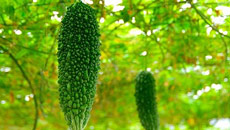In a first, British researchers have devised a simple blood test that can be used to diagnose whether people have cancer or not.
Early results have shown the new test gives a high degree of accuracy in diagnosing cancer and pre-cancerous conditions from the blood of patients with melanoma, colon cancer and lung cancer.
The test will enable doctors to rule out cancer in patients presenting with certain symptoms, saving time and preventing costly and unnecessary invasive procedures, researchers said.
"We found that people with cancer have DNA which is more easily damaged by ultraviolet light than other people, so the test shows the sensitivity to damage of all the DNA -- the genome -- in a cell," explained professor Diana Anderson from the University of Bradford's School of Life Sciences.
White blood cells are part of the body's natural defence system. They go under stress when they are fighting cancer or other diseases.
The Lymphocyte Genome Sensitivity (LGS) test looks at white blood cells and measures the damage caused to their DNA when subjected to different intensities of ultraviolet light (UVA), which is known to damage DNA.
"The results of the empirical study show a clear distinction between the damage to the white blood cells from patients with cancer, with pre-cancerous conditions and from healthy patients," Anderson noted.
The study looked at blood samples taken from 208 individuals. The samples were coded, anonymised, randomised and then exposed to UVA light through five different depths of agar.
The UVA damage was observed in the form of pieces of DNA being pulled in an electric field towards the positive end of the field, causing a comet-like tail.
In the new blood test, the longer the tail the more DNA damage, and the measurements correlated to those patients who were ultimately diagnosed with cancer (58), those with pre-cancerous conditions (56) and those who were healthy (94).
"If the LGS proves to be a useful cancer diagnostic test, it would be a highly valuable addition to the more traditional investigative procedures for detecting cancer," Anderson believed.
The research has been published online in FASEB Journal.





